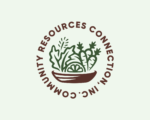/*! elementor – v3.11.2 – 22-02-2023 */
.elementor-heading-title{padding:0;margin:0;line-height:1}.elementor-widget-heading .elementor-heading-title[class*=elementor-size-]>a{color:inherit;font-size:inherit;line-height:inherit}.elementor-widget-heading .elementor-heading-title.elementor-size-small{font-size:15px}.elementor-widget-heading .elementor-heading-title.elementor-size-medium{font-size:19px}.elementor-widget-heading .elementor-heading-title.elementor-size-large{font-size:29px}.elementor-widget-heading .elementor-heading-title.elementor-size-xl{font-size:39px}.elementor-widget-heading .elementor-heading-title.elementor-size-xxl{font-size:59px}
Greater Faith Baptist Church Community Garden – South Carolina
/*! elementor – v3.11.2 – 22-02-2023 */
.elementor-widget-image{text-align:center}.elementor-widget-image a{display:inline-block}.elementor-widget-image a img[src$=”.svg”]{width:48px}.elementor-widget-image img{vertical-align:middle;display:inline-block} 
Primary Contact Person: James L Myers
Garden address: 225 Dorchester Street, Orangeburg, DC 29115
The Greater Faith Baptist Church has operated a vegetable garden for over seven years. The garden was expanded in 2023 from eight beds to 28 beds so that we could provide more produce for our community patrons. In 2024 we were awarded $7,300 from the United States Department of Agriculture (USDA), Natural Resources Conservation Service (NRCS) in conjunction with the non-profit organization, Community Resources Connection (CRC), Inc. to enhance our existing garden. The funding allowed the project to acquire the additional materials and supplies needed to support the garden extension.
The church operates a community soup kitchen every Saturday to address food insecurity in the neighborhood. Some of the vegetables harvested from the garden beds are shared with the community soup kitchen ministry to prepare for patrons and some of the vegetables are shared with patrons.
Orangeburg County is among the counties in South Carolina with the highest percentage of diabetes prevalence, highest poverty percentage and highest percentage of African American residences. Many of the obesity, diabetes, and nutritional concerns in Orangeburg County stem from years of poor eating habits and choices. To have greater positive impact on the food choices available to community citizens, we reached out to our county councilwoman for assistance in expanding our garden’s footprint. Orangeburg County partnered with us to add 20 additional beds to establish Greater Faith Community Garden, which was planted in September of 2023 with our first crops.
Another goal of our community garden is to reduce food insecurity and promote healthier eating by growing fresh vegetables for the residents in the neighborhoods near our church and to introduce youth and teenagers to vegetable gardening. We are accomplishing our mission through the following activities.
- Growing a variety of seasonal vegetables throughout the year.
- Distributing fresh vegetables to community members during the operation of our weekly Soup Kitchen.
- Utilizing fresh vegetables as part of the weekly Soup Kitchen meal.
- Giving students the opportunity to gain community service credits by working in the garden.
- Conducting quarterly community health and nutrition workshops. Fresh vegetables and other incentives will be given to attendees.
- Providing preparation, planting, and harvesting opportunities for youth and school groups.
This grant from the USDA has allowed us to enhance our garden with a tool shed (8×10). This gives us storage space for the additional hand tools needed to introduce volunteers to gardening. We purchased additional hand tools and currently store them in the tool shed. Our new portable outdoor cleaning station will allow patrons to walk away from the garden site with clean vegetables that look very much like what they would purchase in stores. The composting bin purchased with grant funds provides an opportunity to teach our community patrons about composting vegetable waste and producing natural fertilizers for future crops as opposed to chemical fertilizers.
We are now serving an average of 35 meals each Saturday. The beneficiaries of our enhanced community garden are our soup kitchen patrons and their families, and other families who reside in the neighborhoods around the church. The documentation on vegetable distribution is attached to this report.
Survey Results of Adult Gardeners
Adult volunteers were asked to complete a survey. Those completing the survey were all 65 years old or older. They all agreed that because of working in the community garden they eat more fresh vegetables; were able to receive vegetables from the garden; learn more about gardening; gain new gardening skills; they know more about protecting the environment; and feel more involved in the neighborhood.
Patrons
Of the patrons surveyed, 76% were 65 years old or older; 18% were between 55 and 64 years old; and 6% did not indicate age.
All the surveys were completed by females with an average household size of 1.88 adults.
Patrons were asked, how often did you receive vegetables from the garden? They responded as follows:
Every time they were available. – 71%
When there was a vegetable, I liked – 18%
Only once or twice – 11%
Patron said the favorite vegetables distributed were collards, squash, cucumbers, and bell peppers.
When asked which vegetable from the garden they did not like, 59% indicated that there was not a vegetable they did not like; squash and hot peppers were mentioned by 12%; and Kale, collards and tomatoes were each mentioned by 6% of the patrons completing the survey.
When asked which fruit or vegetable they would like for us to plant, most patrons responded listed vegetables that we always plant. The exceptions were watermelons, cantaloupes, apples and strawberries.
The quality of our vegetables was rated as follows:
Excellent: 88%
Good: 12%
Fair: 0%
Poor: 0%
Most of the patrons, 65%, indicated that they were not inspired to start their own garden, while 35% indicated an interest in starting their own garden.
Adverse weather conditions negatively impacted vegetable production this year. We were still able to distribute vegetables on 10 Saturdays to as many as 13 different households with an average of two adults per household. Our challenge is better educating the community members about the benefits of gardening and recruiting more youth and teenagers to work in the garden and inspire them to start their own gardens.
/*! elementor-pro – v3.11.0 – 13-02-2023 */
.elementor-gallery__container{min-height:1px}.elementor-gallery-item{position:relative;overflow:hidden;display:block;text-decoration:none;border:solid var(–image-border-width) var(–image-border-color);border-radius:var(–image-border-radius)}.elementor-gallery-item__content,.elementor-gallery-item__overlay{height:100%;width:100%;position:absolute;top:0;left:0}.elementor-gallery-item__overlay{mix-blend-mode:var(–overlay-mix-blend-mode);transition-duration:var(–overlay-transition-duration);transition-property:mix-blend-mode,transform,opacity,background-color}.elementor-gallery-item__image.e-gallery-image{transition-duration:var(–image-transition-duration);transition-property:filter,transform}.elementor-gallery-item__content{display:flex;flex-direction:column;justify-content:var(–content-justify-content,center);align-items:center;text-align:var(–content-text-align);padding:var(–content-padding)}.elementor-gallery-item__content>div{transition-duration:var(–content-transition-duration)}.elementor-gallery-item__content.elementor-gallery–sequenced-animation>div:nth-child(2){transition-delay:calc(var(–content-transition-delay) / 3)}.elementor-gallery-item__content.elementor-gallery–sequenced-animation>div:nth-child(3){transition-delay:calc(var(–content-transition-delay) / 3 * 2)}.elementor-gallery-item__content.elementor-gallery–sequenced-animation>div:nth-child(4){transition-delay:calc(var(–content-transition-delay) / 3 * 3)}.elementor-gallery-item__description{color:var(–description-text-color,#fff);width:100%}.elementor-gallery-item__title{color:var(–title-text-color,#fff);font-weight:700;width:100%}.elementor-gallery__titles-container{display:flex;flex-wrap:wrap;justify-content:var(–titles-container-justify-content,center);margin-bottom:20px}.elementor-gallery__titles-container:not(.e–pointer-framed) .elementor-item:after,.elementor-gallery__titles-container:not(.e–pointer-framed) .elementor-item:before{background-color:var(–galleries-pointer-bg-color-hover)}.elementor-gallery__titles-container:not(.e–pointer-framed) .elementor-item.elementor-item-active:after,.elementor-gallery__titles-container:not(.e–pointer-framed) .elementor-item.elementor-item-active:before{background-color:var(–galleries-pointer-bg-color-active)}.elementor-gallery__titles-container.e–pointer-framed .elementor-item:before{border-color:var(–galleries-pointer-bg-color-hover);border-width:var(–galleries-pointer-border-width)}.elementor-gallery__titles-container.e–pointer-framed .elementor-item:after{border-color:var(–galleries-pointer-bg-color-hover)}.elementor-gallery__titles-container.e–pointer-framed .elementor-item.elementor-item-active:after,.elementor-gallery__titles-container.e–pointer-framed .elementor-item.elementor-item-active:before{border-color:var(–galleries-pointer-bg-color-active)}.elementor-gallery__titles-container.e–pointer-framed.e–animation-draw .elementor-item:before{border-left-width:var(–galleries-pointer-border-width);border-bottom-width:var(–galleries-pointer-border-width);border-right-width:0;border-top-width:0}.elementor-gallery__titles-container.e–pointer-framed.e–animation-draw .elementor-item:after{border-left-width:0;border-bottom-width:0;border-right-width:var(–galleries-pointer-border-width);border-top-width:var(–galleries-pointer-border-width)}.elementor-gallery__titles-container.e–pointer-framed.e–animation-corners .elementor-item:before{border-left-width:var(–galleries-pointer-border-width);border-bottom-width:0;border-right-width:0;border-top-width:var(–galleries-pointer-border-width)}.elementor-gallery__titles-container.e–pointer-framed.e–animation-corners .elementor-item:after{border-left-width:0;border-bottom-width:var(–galleries-pointer-border-width);border-right-width:var(–galleries-pointer-border-width);border-top-width:0}.elementor-gallery__titles-container .e–pointer-double-line .elementor-item:after,.elementor-gallery__titles-container .e–pointer-double-line .elementor-item:before,.elementor-gallery__titles-container .e–pointer-overline .elementor-item:before,.elementor-gallery__titles-container .e–pointer-underline .elementor-item:after{height:var(–galleries-pointer-border-width)}.elementor-gallery-title{–space-between:10px;cursor:pointer;color:#6d7882;font-weight:500;position:relative;padding:7px 14px;transition:all .3s}.elementor-gallery-title–active{color:#495157}.elementor-gallery-title:not(:last-child){margin-right:var(–space-between)}.elementor-gallery-item__title+.elementor-gallery-item__description{margin-top:var(–description-margin-top)}.e-gallery-item.elementor-gallery-item{transition-property:all}.e-gallery-item.elementor-animated-content .elementor-animated-item–enter-from-bottom,.e-gallery-item.elementor-animated-content .elementor-animated-item–enter-from-left,.e-gallery-item.elementor-animated-content .elementor-animated-item–enter-from-right,.e-gallery-item.elementor-animated-content .elementor-animated-item–enter-from-top,.e-gallery-item:hover .elementor-gallery__item-overlay-bg,.e-gallery-item:hover .elementor-gallery__item-overlay-content,.e-gallery-item:hover .elementor-gallery__item-overlay-content__description,.e-gallery-item:hover .elementor-gallery__item-overlay-content__title{opacity:1}a.elementor-item.elementor-gallery-title{color:var(–galleries-title-color-normal)}a.elementor-item.elementor-gallery-title.elementor-item-active,a.elementor-item.elementor-gallery-title.highlighted,a.elementor-item.elementor-gallery-title:focus,a.elementor-item.elementor-gallery-title:hover{color:var(–galleries-title-color-hover)}a.elementor-item.elementor-gallery-title.elementor-item-active{color:var(–gallery-title-color-active)}.e-con-inner>.elementor-widget-gallery,.e-con>.elementor-widget-gallery{width:var(–container-widget-width);–flex-grow:var(–container-widget-flex-grow)}

